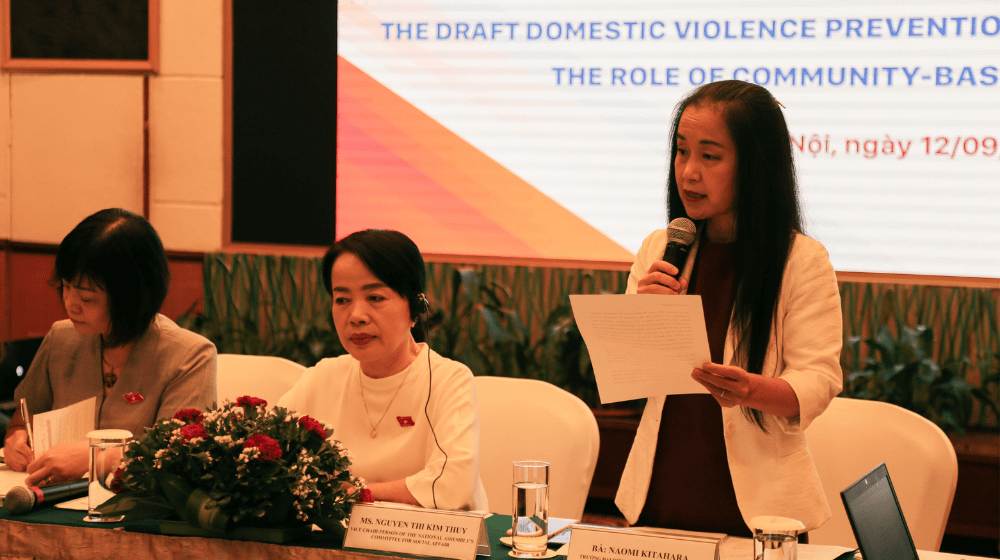Excellency, Ms. Nguyen Thi Kim Thuy, Vice Chairwoman of the National Assembly Committee for Social Affairs;
Deputies to the National Asembly;
Representatives from the Ministry of Culture, Sports and Tourism;
Ms. Nguyen Van Anh, Chairwoman of CSAGA;
Representatives from the GBVNet Viet Nam;
Representatives from local media;
I am honoured to co-chair another discussion on the draft amended Domestic Violence Prevention and Control Law, which is a crucial legislation that ensures human rights and leaves no one behind in Vietnam’s sustainable development process. I would like to thank the National Assembly Committee for Social Affairs and CSAGA for organising today’s session, which is extremely timely as the 4th plenary session of the 15th National Assembly will be convened in October and is expected to approve this Law.
Dear Participants,
Since October 2021, when the first draft of the Domestic Violence Prevention and Control Law was released for feedback from the public, many technical meetings and consultative workshops were organised by the Ministry of Culture, Sports and Tourism to discuss options, share experience from other countries, and debate the best alternative to take for Viet Nam. UNFPA is very honoured to work very closely with MoCST during the revision process, providing technical support to incorporate recommendations from different studies and ensure international standards and commitments on the prevention and response to domestic violence.
And we are very glad to see that the revised Law on Domestic Violence Prevention and Control has been based on a human rights approach, incorporating international lessons, and good practices. We have recommended to strengthen the effectiveness of state institutions, while creating favourable conditions for community-based organisations and non-governmental organisation to contribute to the implementation of policies and programmatic interventions to tackle domestic violence in Vietnam.
The survivor–centred approach has been applied to ensure the rights of domestic violence survivors, and their needs and voices have been taken into account seriously. This was important especially in the context of Viet Nam where violence against women is mostly hidden. The amendment also focused on the provision of essential and integrated services for DV survivors. Relevant stakeholders have been requested to pay further attention and provide financial and technical resources.
After the amended DVPC Law was elaborated during the 3rd plenary session of the 15th National Assembly in June, I have learnt that the Ministry of Culture, Sports and Tourism and PCSA have incorporated all the feedback and comments and finalised the latest draft version with 56 articles.
Here, I would like to highlight that experience from other countries such as Australia, South Korea, Canada, and Sweden has shown that social organisations partner with the state in addressing DV. Social organisations are close to communities and effective in providing essential services to DV survivors while receiving financial support from their governments. I would like to ask if Vietnam can also explore this option, so that all stakeholders work together, hand-in-hand, to eliminate DV in the country.
I wish you a fruitful discussion today.
Thank you for your attention.



